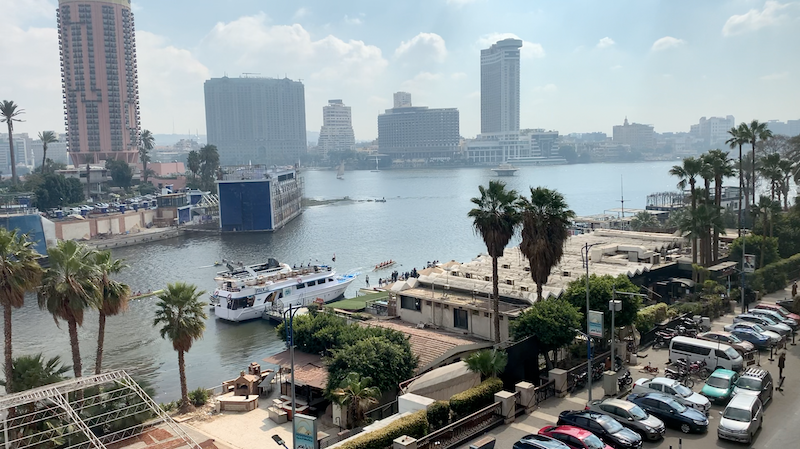With a remarkable concentration of archaeological sites and coastal areas already rich in seaside resorts, Egypt enjoys undeniable tourist potential. The country's second source of foreign currency, behind transfers from the diaspora but ahead of income from the Suez Canal, tourism brought in USD 10.7 billion in 2021/22, a rebound after two years of revenue weakened by the pandemic. This rent, vital for the Egyptian economy (9% of GDP and 10% of total employment in the country) was recovering from the Covid crisis when the war in Ukraine broke out.
Arrivals of Russian and Ukrainian nationals who made up nearly 40% of the total number of annual tourists have fallen by 40% and 80% respectively since March 2022. The impact of the conflict, however, seems to have been temporary: Fitch anticipates a flow of tourists reaching 11.6 million (+46%) for the current financial year.
In a macroeconomic context marked by strong tensions on liquidity in foreign currencies, the development of tourism is at the heart of the priorities of the State, which aims to reach 30 million tourists per year by 2028 (and 30 billion in revenue associated). The depreciation of the pound makes the country all the more attractive for tourists.
According to the Minister of Tourism, 30 billion USD of investments would nevertheless be necessary to develop Egypt’s already substantial hotel capacities, in order to achieve the set objective. The current weaknesses in the sector are today due to the poor quality of the offer, hotel infrastructure and service often below international standards, and the insufficiency of flights serving Egypt (low penetration of “low -cost”).
The increase in tourist income will also have to go through an improvement in the performance of Egyptian airports, and through the facilitation of obtaining visas. Finally, a diversification of the public targeted in the promotion of the destination Egypt is planned by the authorities, who wish to open up to new types of tourism (eco-tourism, medical, business, etc.) and to other geographies (in addition to tourists from the Gulf already present, Asia, Latin America, etc.).
This revitalization strategy is based on increased recourse to the private sector and foreign investment. The state also plans to gradually withdraw from this sector to attract foreign investors as part of the privatization plan announced in February 2023. Saudi and Qatari investors are said to be particularly interested in buying public stakes in the sector. hotelier.
Private hotel groups are also continuing to invest in the country: Hilton plans to double its number of resorts to 27 within 3 to 5 years, Travco plans to invest €210 million to strengthen its hotel capacity and Accor, which already operates 35 hotels in Egypt, plans to open 12 more over the next seven years.
While progress is hoped for in the air sector – we note in particular the first flight received at the beginning of March 2023 by the Sphinx airport, inaugurated in 2020 to relieve congestion in Cairo by directly serving the Giza plateau – several mobility projects on the sites tourism or digitization in museums are emerging.
Source: French Embassy in Egypt








Réagissez à cet article